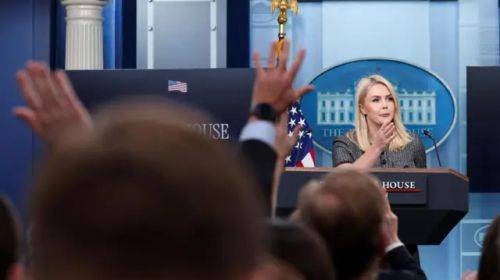Trump's Rash Tariffs Against China Are Pushing the EU Into Beijing's Arms
Former US President Donald Trump's decision to reinstate heavy tariffs on Chinese imports has retriggered global trade tensions. Even though the decision is ostensibly aimed at protecting American businesses and breaking the nation's addiction to Chinese manufacturing, its domino consequences are felt across the globe. One of the most significant—and perhaps not so unconscious—spin-offs is the widening alignment of the European Union (EU) and China.
Trump's tariffs, some of which are well over 100% on Chinese imports, are rerouting global trade flows and coalitions. Europe, economically and politically long-aligned with America, is reconsidering its venerable alliances. Facing the double challenge of maintaining economic growth and coping with a steadily more volatile U.S. government, the EU is edging toward Beijing, though cautiously so.
The immediate economic impact of the tariffs has been brutal. Global supply chains, weakened already by past trade wars and by the disruptions from the pandemic, are strained yet again. EU companies that export to the U.S. or rely on Chinese parts are in a vulnerable position. The EU's big economies, including Germany and France, with their export-oriented manufacturing sectors, are most at risk. Rather than wait for the crisis to worsen, European leaders are seeking alternatives to protect their economic interests—and China is an intriguing option.
In the past few months, there have also been significant upticks in diplomatic interactions among European and Chinese leaders. The talks have not only concerned trade but also more general spheres of cooperation, ranging from technological innovation to climate change. European policymakers are well aware that embracing too close an alignment with China would stir up political opposition at home and on the other side of the Atlantic. Yet, Beijing's promise of market stability and investment opportunities is increasingly difficult to resist.
The EU has been treading carefully. Rather than undergoing any great turn, European powers are looking for what they refer to as "strategic autonomy." This amounts to less dependency on any particular world power—the U.S. and China—at the same time as building various strong partnerships. In reality, however, the increased engagement of China is a clear indication Europe is hedging its bets as the world grows more polarized.
Trump's trade policy, based on the "America First" doctrine, ignored concerns of long-time allies. The EU, which was struck by American tariffs almost as often as China, grew increasingly irritated. Steel and aluminum tariffs, along with other European products, have created a feeling of betrayal among European politicians, expecting special status considering decades of political and military partnership. As a result, most European policymakers have the opinion that although transatlantic relations are still very important, they cannot be taken for granted anymore.
The EU's gradual shift towards Beijing has profound geopolitical implications. A stronger EU-China bloc can potentially challenge America's dominance in global economic affairs. Beijing is keen to take advantage of this, projecting itself as a stable and reliable partner against the uncertainty that surrounds Washington's trading habits. For China, stronger European links mean access to cutting-edge technology, investments, and a potential counterweight to American influence.
But such alignment is risky. European attitudes to China remain disparate, especially with regard to the issues of human rights and company transparency. In addition, bringing Europe closer to China poses risks of disunity within the EU itself since the member states have not all of them got a similar level of enthusiasm as the others for welcoming Beijing. EU will have to deal with in-house dynamics should it have any hope of reaping benefits of closer relations at the cost of political cohesion.
In the end, Trump's pugnacious tariffs aimed at punishing China may have inadvertently accelerated a global bloc realignment. As Europe tentatively rearranges its own foreign strategy, the consequences of the shift could be profound, reshaping world trade and diplomacy for decades to come.




No comments yet
Be the first to share your thoughts!